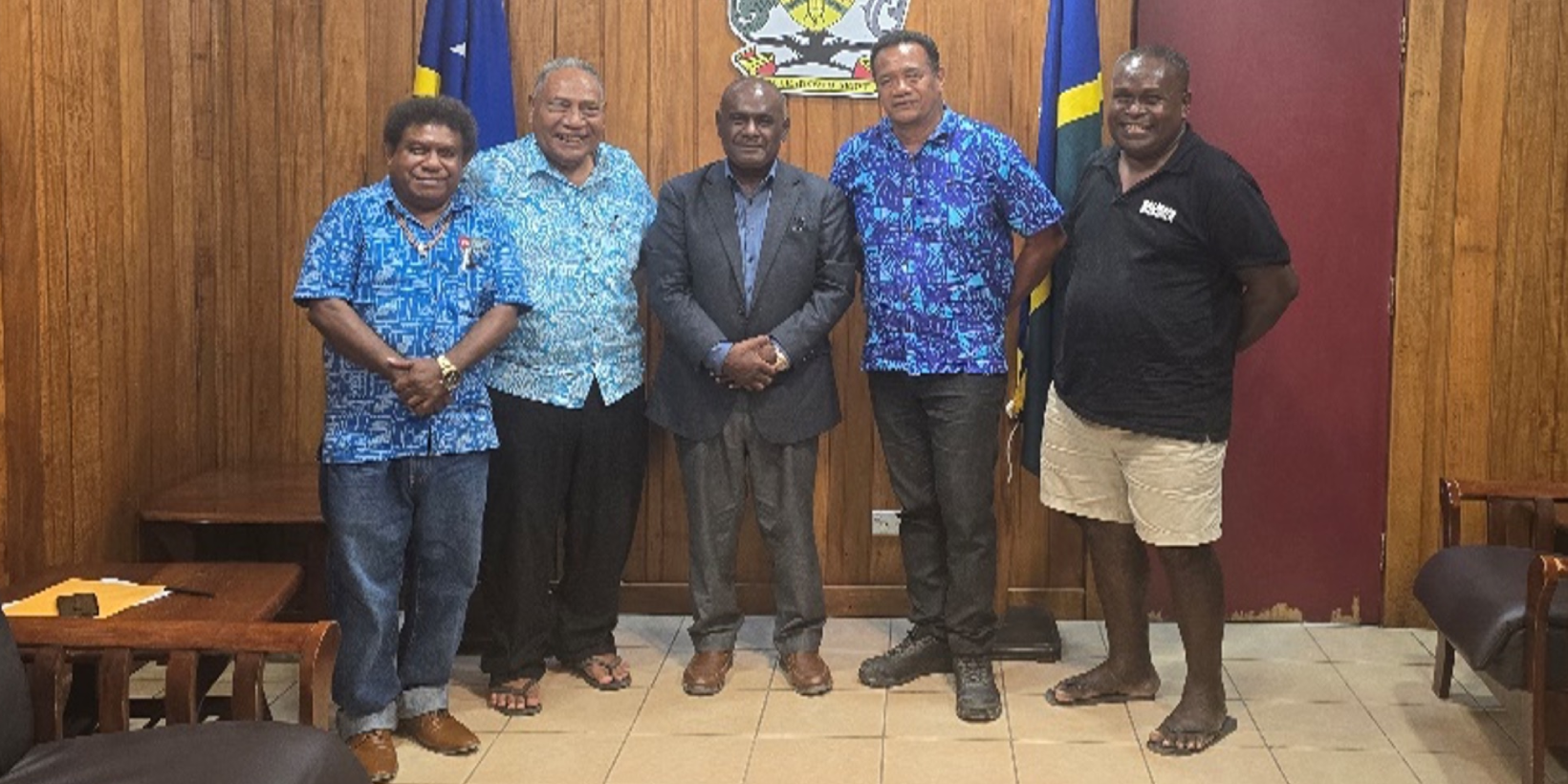The Solomon Islands Council of Trade Unions (SICTU) has raised serious concerns regarding the government’s preliminary policy work to explore the establishment of a Solomon Islands Defence Force (SIDF).
In a statement SICTU President Tony Kagovai said, while it acknowledge the government’s stated intentions of enhancing national sovereignty and self-reliance, it question the merit and timing of such a significant undertaking when the foundational security force of our nation—the Royal Solomon Islands Police Force (RSIPF)—is being systematically failed by the very same government.
The government’s proposal for a defence force, as explained by the Minister of Police and National Security, Hon. Jimson Tanangada, is to “fill capability gaps in national maritime surveillance, border protection, disaster response, humanitarian relief, and national emergency support” .
“However, we note that the RSIPF already possesses a Maritime Department that acts as a de facto navy, conducting patrols of our Exclusive Economic Zone (EEZ) and borders .
“Before committing vast public resources to a new, parallel structure, the government must first justify why the existing capacities within the RSIPF are deemed insufficient and why investment cannot be scaled within the current framework.
“Our primary contention, however, is not merely one of structure, but of priority. The government’s ambition for a future military force stands in stark contrast to its present neglect of the police and correctional officers who currently bear the entire burden of our national security,” Kagovai said in the statement.
Systematic Silencing of Police Welfare Advocacy
SICTU has previously been compelled to call out the Ministry of Police, National Security & Correctional Services for delaying the long-overdue Annual General Meeting (AGM) of the Solomon Islands Police Officers Association (SIPOA)—the legitimate voice for its members within the RSIPF and Correctional Services .
Despite approval from the Commissioner of Police, the Ministry’s HR Directorate has stalled this critical democratic process.
“This delay is not an administrative oversight; it is a deliberate strategy to silence the collective voice of police and correctional officers. By preventing SIPOA from convening and electing a functional board, the Ministry excludes officers from critical discussions on their welfare and working conditions .
“How can the government speak of long-term nation-building and resilience when it actively suppresses the voices of those on the front line?” Kagovai stated.
Failure to Uphold the Welfare of Serving Officers and Families
Police officers and their families continue to experience profound difficulties because of the government’s failure to properly look after their welfare.
The absence of a robust and active SIPOA means there is no structured platform to advocate for these officers, leaving them without a strong collective voice to address issues such as:
- Working Conditions: The demanding roles in disaster response, maritime security, and public policing stretch the capacity of the RSIPF , yet their working conditions and support do not reflect these challenges.
- Remuneration and Benefits: The government’s commitment must be demonstrated through tangible investment in the salaries and benefits of those currently serving.
- Mental and Physical Well-being: Officers tasked with national security and disaster response require comprehensive support systems for themselves and their families, which are currently lacking.
Our Call to the Government
SICTU hereby issues the following calls:
Address Current Failings First: We call on the government to immediately drop its plans for a Solomon Islands Defence Force and instead focus all its efforts and resources on fully supporting the RSIPF and Correctional Services. The security of Solomon Islands must indeed be “owned, led, and sustained by Solomon Islanders” , and this starts with properly supporting the forces we already have.
End the Interference with SIPOA: We urge the Honourable Minister of Police, National Security & Correctional Services to intervene directly and ensure the Permanent Secretary directs the HR Manager to facilitate the SIPOA AGM without further delay. The rights to freedom of association and collective bargaining are fundamental and non-negotiable .
Commit to a Welfare Dialogue: The government must publicly commit to entering into good-faith discussions with a duly elected SIPOA board to address all outstanding welfare and working condition issues for police and correctional officers.
The establishment of a defence force is a “strategic and forward-looking investment” only if the foundation upon which it is built is solid.
That foundation is our police force. To ignore their plight while pursuing a new military project is to build on sand. The government must deal with the current crisis in police welfare before committing to another formation.








